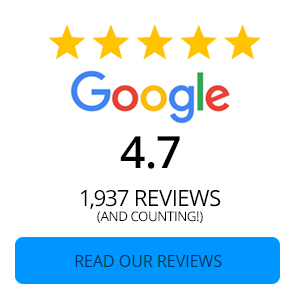You're at the checkout counter, and the cashier pops the tempting question: "Would you like to save 20% on your entire purchase today by opening one of our store cards?" It's a common offer, and that instant discount can be hard to resist. But before you say yes, it's crucial to understand the long-term implications for your financial health.
So, should you get a store credit card? Are store credit cards bad for your credit, or can they be a useful tool? This guide will explore everything you need to know about how store credit cards and your credit score interact.
What is a Store Credit Card? Understanding the Meaning
First, let's define the store credit meaning. A store credit card is a type of retail-branded credit line offered by a specific store or group of brands. They come in two main types:
Closed-Loop Cards: These are the most common type of store cards. You can only use them for purchases at that specific retailer (e.g., Target RedCard, Kohl's Card).
Open-Loop Cards: These are co-branded with a major credit card network like Visa, Mastercard, or Amex. You can use them anywhere that network is accepted, but you'll often earn extra rewards when shopping with the affiliated brand (e.g., the Amazon Prime Rewards Visa Signature Card).
Both types function as lines of credit, meaning they are reported to credit bureaus and have a direct impact on your credit profile.
The Upside: How Can a Store Credit Card Help Your Credit Score?
Despite their reputation, store credit cards aren't universally bad. When managed responsibly, they can offer several benefits. So, do store credit cards help your credit score? Yes, they can in several ways:
Builds Credit History: For someone with a limited credit history or a thin file, a store card can be an accessible entry point. Making small, regular purchases and paying the bill on time every month demonstrates responsible credit behavior to the credit bureaus.
Increases Total Available Credit: Adding a new credit line increases your total available credit. This can help lower your overall credit utilization ratio—the percentage of available credit you're using—which is a major factor in your credit score.
Easier to Qualify For: Are store credit cards easier to get? Often, yes. Retailers want to encourage spending, so the credit score needed for store cards is typically lower than for major bank credit cards, making them a viable option for those with fair credit.
Access to Perks: The most obvious benefit is access to exclusive discounts, special financing offers, and rewards programs at a store you frequent.
The Downside: Do Store Credit Cards Hurt Your Credit Score?
This is the most common concern, and the answer is complex. Do store credit cards hurt your credit? They certainly can if you're not careful. Here's a breakdown of the potential negative impacts.
Initial Impact: Does Applying for a Store Credit Card Hurt Your Credit?
Yes, there is a small, temporary negative effect when you first apply. Here's why:
Hard Inquiry: When you apply, the issuer performs a "hard inquiry" on your credit report. This can cause your score to dip by a few points for a short period. Applying for too many cards in a short time can be a red flag to lenders.
Reduced Average Age of Accounts: Opening a new account lowers the average age of all your credit accounts. A longer credit history is generally better for your score, so this can also cause a temporary dip.
So, will opening a store credit card lower my score? Initially, yes, it's very likely. However, this effect is usually minor and temporary for those with an established credit history.
Long-Term Risks: How Store Cards Can Hurt Your Score
The more significant danger comes from how these cards are managed over time.
High Interest Rates (APRs): Store cards are notorious for having APRs that are significantly higher than traditional credit cards, often exceeding 25%. If you carry a balance, the interest charges can quickly spiral, making it difficult to pay off your debt.
Low Credit Limits: Retail cards often come with low credit limits. This makes it very easy to have a high credit utilization ratio on that specific card. For example, charging $300 on a card with a $500 limit means your utilization is 60%—well above the recommended 30%. And yes, do store cards count towards credit utilization? Absolutely. Credit bureaus look at both your overall utilization and the utilization on individual cards.
Temptation to Overspend: That initial 20% discount is designed to encourage you to spend more. It's easy to fall into the trap of making unplanned purchases just to use the card or get a reward, leading to debt.
Store Credit Cards: Good or Bad? The Final Verdict
The debate over whether store credit cards are good or bad doesn't have a simple answer. They are a financial tool, and their impact depends entirely on the user.
You should consider getting a store credit card if:
You are financially disciplined and always pay your balance in full and on time.
You are a frequent shopper at that specific store and can genuinely benefit from the rewards.
You are trying to build or diversify your credit history and will use the card responsibly for small purchases.
You should probably avoid opening a store credit card if:
You tend to carry a balance on your credit cards. The high APR will negate any discounts you receive.
You are an impulse shopper. The card may tempt you into unnecessary debt.
You are planning to apply for a major loan, like a mortgage or an auto loan from a lender like Coosa Valley Credit Union, in the next six months. The hard inquiry and new account could temporarily lower your score at a critical time.
Frequently Asked Questions About Store Credit Cards
What credit score do I need to get a store card?
The minimum credit score for a store credit card varies, but they are often available to applicants with fair credit (typically scores in the low-to-mid 600s). Some retailers may even approve applicants with lower scores or offer options for those with store credit card bad credit, but these will come with very high interest rates and low limits.
How many store credit cards should I have?
There is no magic number. Having one or two cards for stores you frequent can be manageable and beneficial. However, having a wallet full of them can be a red flag to lenders, suggesting you may be over-reliant on credit. Focus on quality and responsible use over quantity.
Are store credit cards worth it?
They are only worth it if the rewards you earn outweigh the risks and you never carry a balance. If you pay high interest fees, any discounts you received are quickly erased.
Make the Smart Choice for Your Finances
Ultimately, the decision to open a store credit card rests on your personal financial habits. If you're confident in your ability to use it as a tool for savings and credit-building without falling into debt, it can be a fine addition to your wallet. However, for most people, a traditional, low-interest credit card, like a Coosa Valley Credit Union credit card, offers more flexibility and less risk.
If you have questions about building your credit or finding the right credit products for your needs, Coosa Valley Credit Union is here to help. Contact us today to speak with a financial expert.

